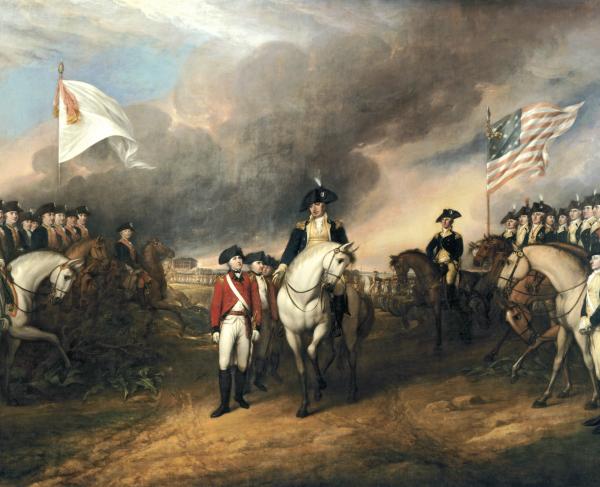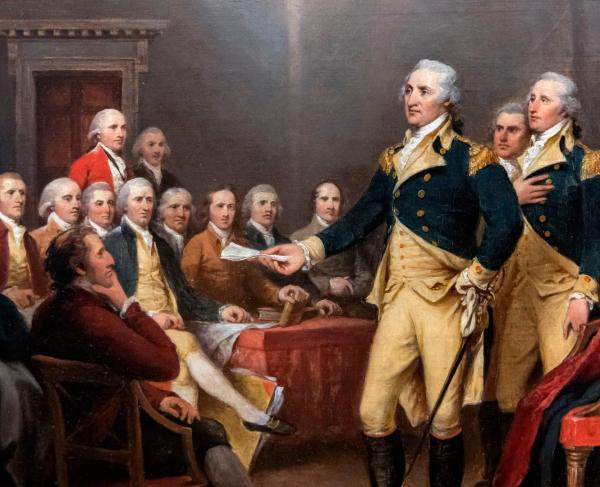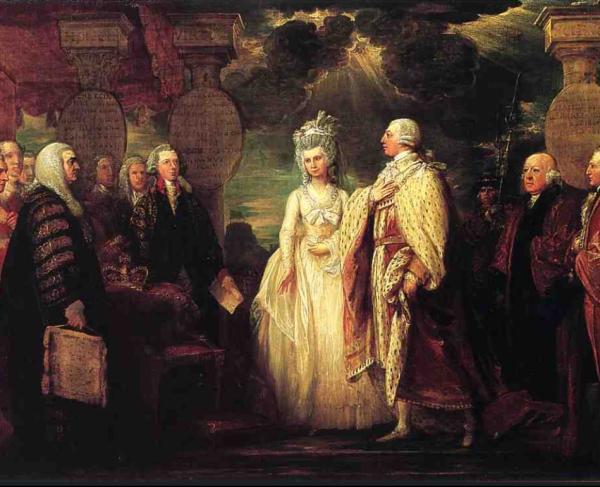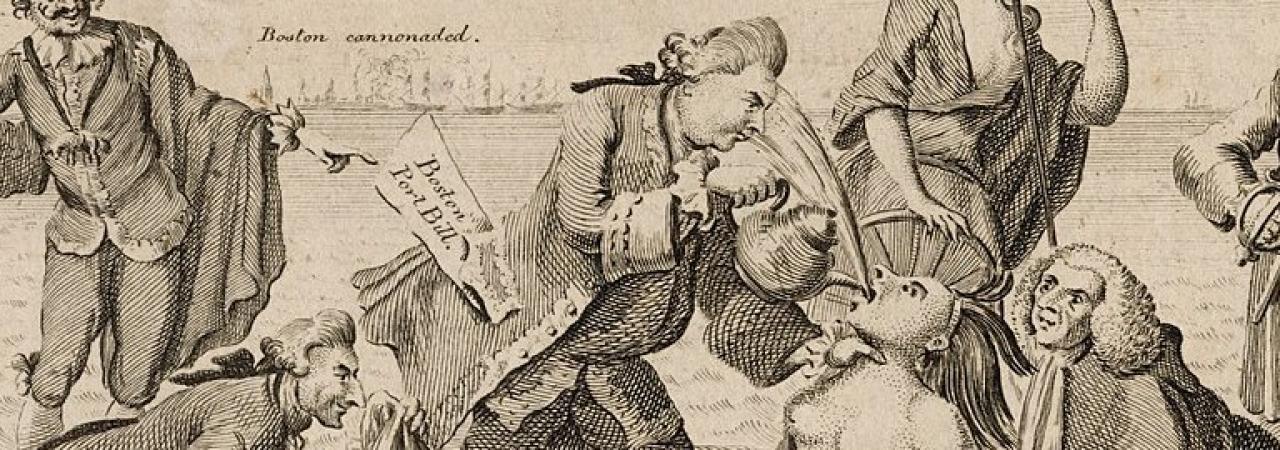
In 1774, Great Britain decided to use brute force to deal with the rebellious American colonies, particularly the colony of Massachusetts. Following the blatant insubordination of the Boston Tea Party in 1773, Great Britain aimed to use a heavy hand on the rebellious colony of Massachusetts. In 1774 Parliament passed four acts that they described as the Coercive Acts but quickly became known in America as the Intolerable Acts because they perceived as being so cruel and severe.
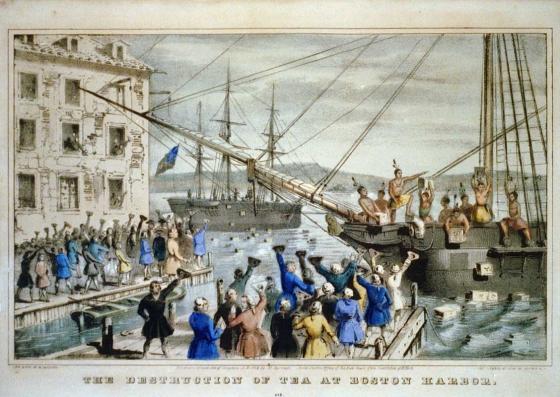
Since the end of the French and Indian War, Great Britain had sought to find a way to get the American colonies to pay for the cost of the expensive war. After repeatedly passing laws such as the Stamp Act, the Townshend Acts, and the Tea Act, the colonists had protested, disobeyed, or boycotted to avoid paying the taxes. When a group of Bostonians destroyed hundreds of crates of British tea on December 16, 1773, rather than pay taxes on them, Britain reacted by passing these Coercive Acts.
The first act passed was the Boston Port Act which closed the port of Boston. Britain determined that the business of the city would be stopped entirely until the people of Boston paid for the tea that had been destroyed. This act not only caused fear and panic among many of the city’s merchants, it punished the entire city for the actions of the radicals who destroyed the tea. The move also flexed the power of Great Britain, demonstrating their ability to shut down an entire city’s port with their navy.
Next, they passed the Massachusetts Government Act which essentially revoked the charter of the royal colony and placed them under the direct control of Great Britain. The British would now exercise complete control over the colony while they limited the number of town meetings that could be held in the colony, effectively removing their capability of self-rule and self-government.
The Administration of Justice Act removed the ability of the colonists to hold trials of British officials in the colonies. Despite the fact that in 1770, the British soldiers who committed the “Boston Massacre” were given a fair trial and acquitted of the charges of murder, this showed the British still did not trust the colonists in administering justice. By having British soldiers sent back to England for trial, many patriots saw this as a way for British officials and soldiers to avoid justice.
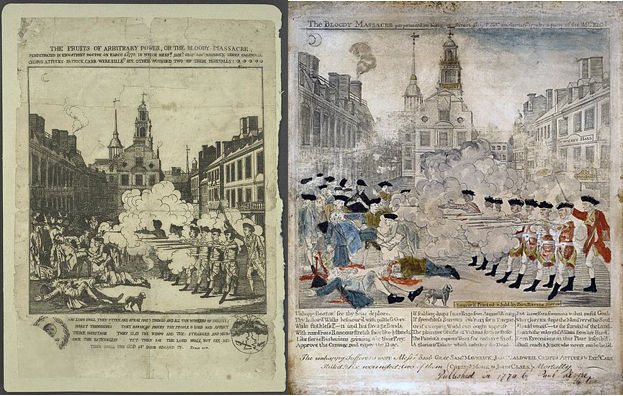
Finally, a Quartering Act allowed royal governors, rather than colonial legislatures, to find homes and buildings to quarter or house British soldiers. This applied to all the colonies and only further enraged colonists by having what appeared to be foreign soldiers billeted in American cities.
The Crown had hoped these strict and punitive acts would be used as a punishment for the colony of Massachusetts and as a warning and threat to the other American colonies as well. The hope was that other colonies would soon submit to British authority and resume their place as subordinates to Parliament and the Crown out of fear of similar reprisals.
However, these measures backfired on the British. Other colonies recoiled in horror at what they witnessed. After seeing the power Great Britain leveled on Massachusetts, other colonies quickly became sympathetic with their fellow colonists and began to wonder how much longer it would be before the same type of actions would be done to their own cities or colonies. The other American colonies soon sent aid and supplies to the beleaguered people of Boston.
On top of the fear these acts caused in colonies throughout America, they also forced the colonists to begin asking more important questions. These questions included: where had Great Britain received its authority? And to what degree did they have the right to use such force on the colonies? The word tyranny was used to describe the actions of Parliament and the Crown. Men like George Washington in Virginia would write, “Shall we supinely sit, and see one province after another fall a sacrifice to despotism?”
Throughout the American colonies, in the summer of 1774, days of fasting and prayer were held for the people of Boston. Pamphlets, treatises, and resolves were published across America demonizing the Intolerable Acts and asserting the rights of American colonies to self-government. These harsh acts only seemed to make the colonists more resistant to British rule.
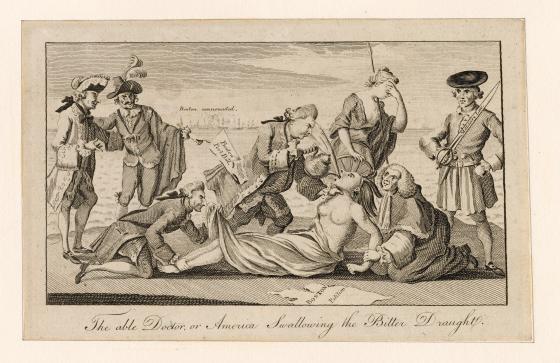
In many of the American colonies, citizens created extra-legal Committees of Correspondence that operated as unofficial governments of people opposed to the laws being passed by the Parliament and royal governors. The colonies became fearful that the British may pass more punitive laws on their own colonies. They decided to form a Continental Congress where representatives from all the American colonies could gather and discuss how they should collectively respond to the Intolerable Acts.
The First Continental Congress convened on September 5, 1774. Men from twelve American colonies (Georgia did not send anyone to the First Continental Congress) gathered in Philadelphia to determine a response. After weeks of discussions, the delegates decided to take a cautious approach and simply boycott British goods and send a petition to King George III begging that the Intolerable Acts be repealed. However, the petition would receive no reply from King George III.
A few months later blood would be spilled outside Boston at Lexington and Concord. The battles there would be the first shots of a bloody war that would last eight years and cost thousands of lives and result in the independence of the United States of America. Clearly the passage of the Intolerable Acts was a key moment in the lead up to this war. The Intolerable Acts were meant to force the rebellious colonies back into place, but the opposite happened and only further fueled the flames of rebellion in North America. What started out as protests over taxes and authority led to the self-realization of Americans that they were not subject to British control, but were indeed, free and independent.
Further Reading
- Almost a Miracle: The American Victory in the War of Independence By: John Ferling
- The Glorious Cause: The American Revolution, 1763-1789 By: Robert Middlekauff
- American Revolutions: A Continental History, 1750-1804 By: Alan Taylor
Related Battles
93
300
